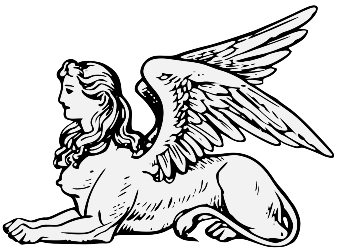Sōjōbō (Japanese: 僧正坊 or そうじょうぼう, meaning "high priest") is the name given to a Daitengu who lives on Mount Kurama in the northern part of Kyōto and who is the king of Tengu in Japanese mythology. His home is in Sōjōgatani—”the valley of the high priest”—located deep within the interior of the mountain. He is also sometimes known as Kurama tengu or Kurama sōjōbō.
Myths & Legends[]
Not much is written about Sōjōbō, although his name is well known. The most famous legend about Sōjōbō is that he trained a young boy named Ushiwakamaru. As the king of the tengu, Sōjōbō possesses a knowledge of magic, military tactics, and swordsmanship unsurpassed by any other. The young Ushiwakamaru wished to learn from him, and traveled deep into Sōjōgatani to undergo a long and arduous training. This was a very dangerous quest, as tengu are fierce and unpredictable, and Sōjōbō was rumored to eat children who wandered too deep into the forest. However, Sōjōbō was impressed with the young boy’s bravery and agreed to train him.
Ushiwakamaru grew up to become Minamoto Yoshitsune, who lived from 1159-1189 CE. Yoshitsune remains of Japan’s most celebrated warriors, and is one of the main heroes in the Tale of the Heike. His umatched swordsmanship is credited to the training he received from the tengu of Mount Kurama.
Appearance[]
He has long, white hair, an incredibly long nose, and possesses the strength of one thousand tengu. Sōjōbō is first in rank among the tengu, and is often referred to as their king.
Origin[]
Sōjōbō is known through his connection to Kurama Temple, an isolated temple which practices a unique branch of esoteric Buddhism. Kurama Temple has long had a connection with yamabushi and ascetic mountain religions, and the tengu which these religions worship. Because Sōjōbō resides there, Mount Kurama is also considered to be the most important mountain to tengu. According to Kurama Temple, Sōjōbō is either one rank below Maō-son—one third of the holy trinity which is central to the Kurama faith—or is in fact another form of Mao-son.



